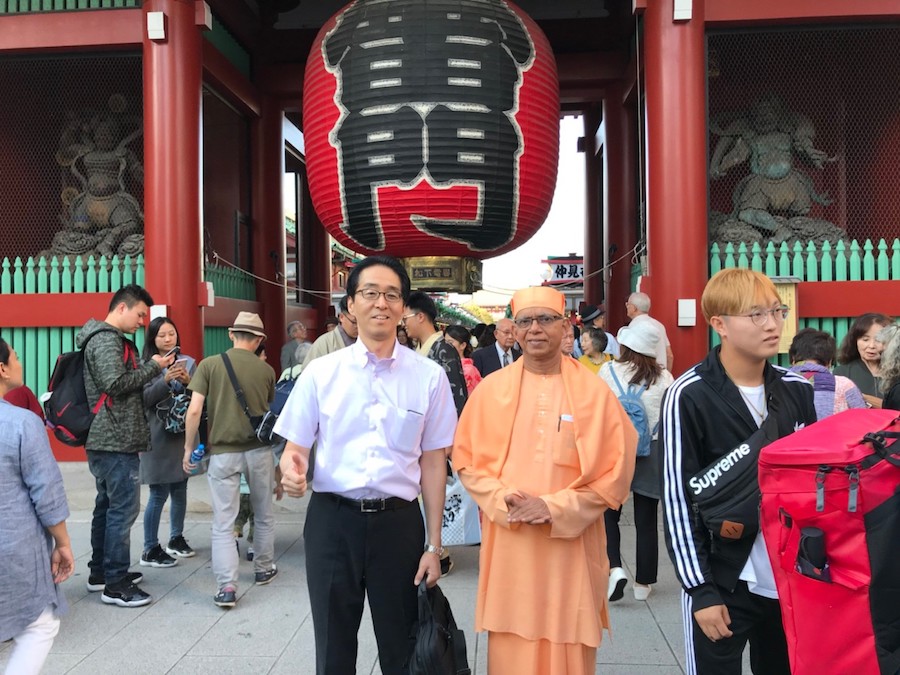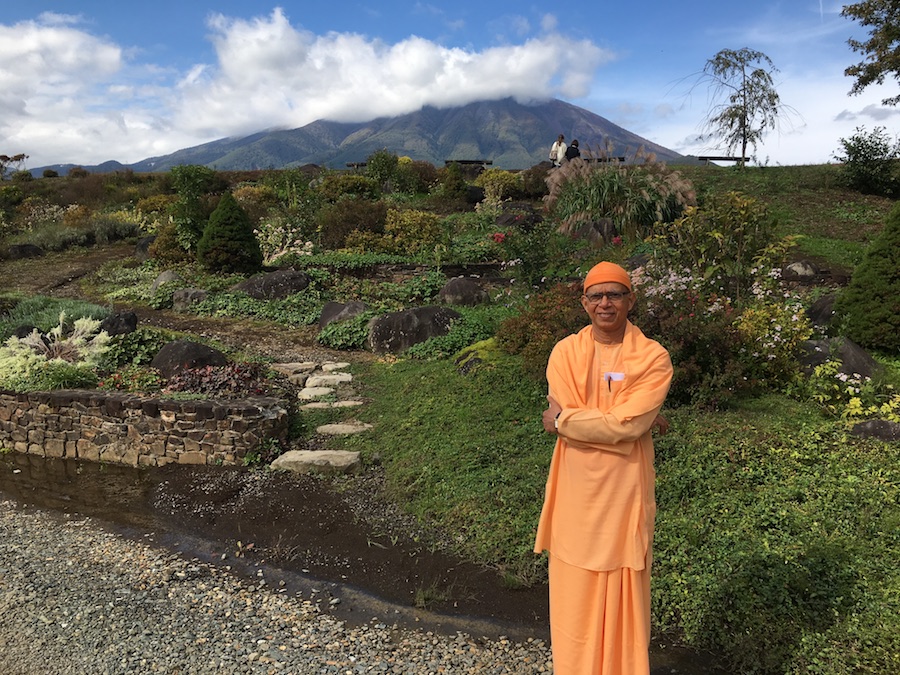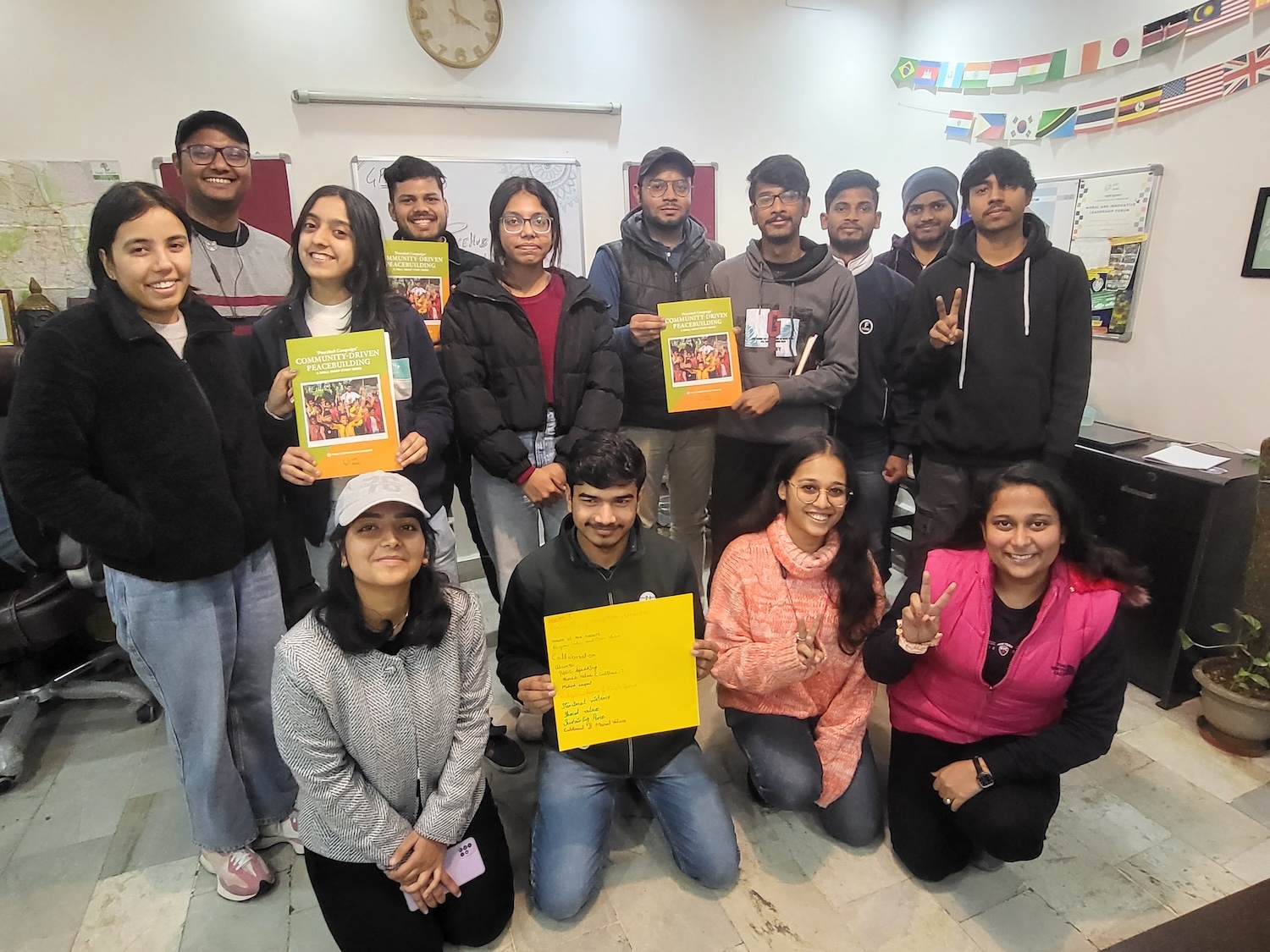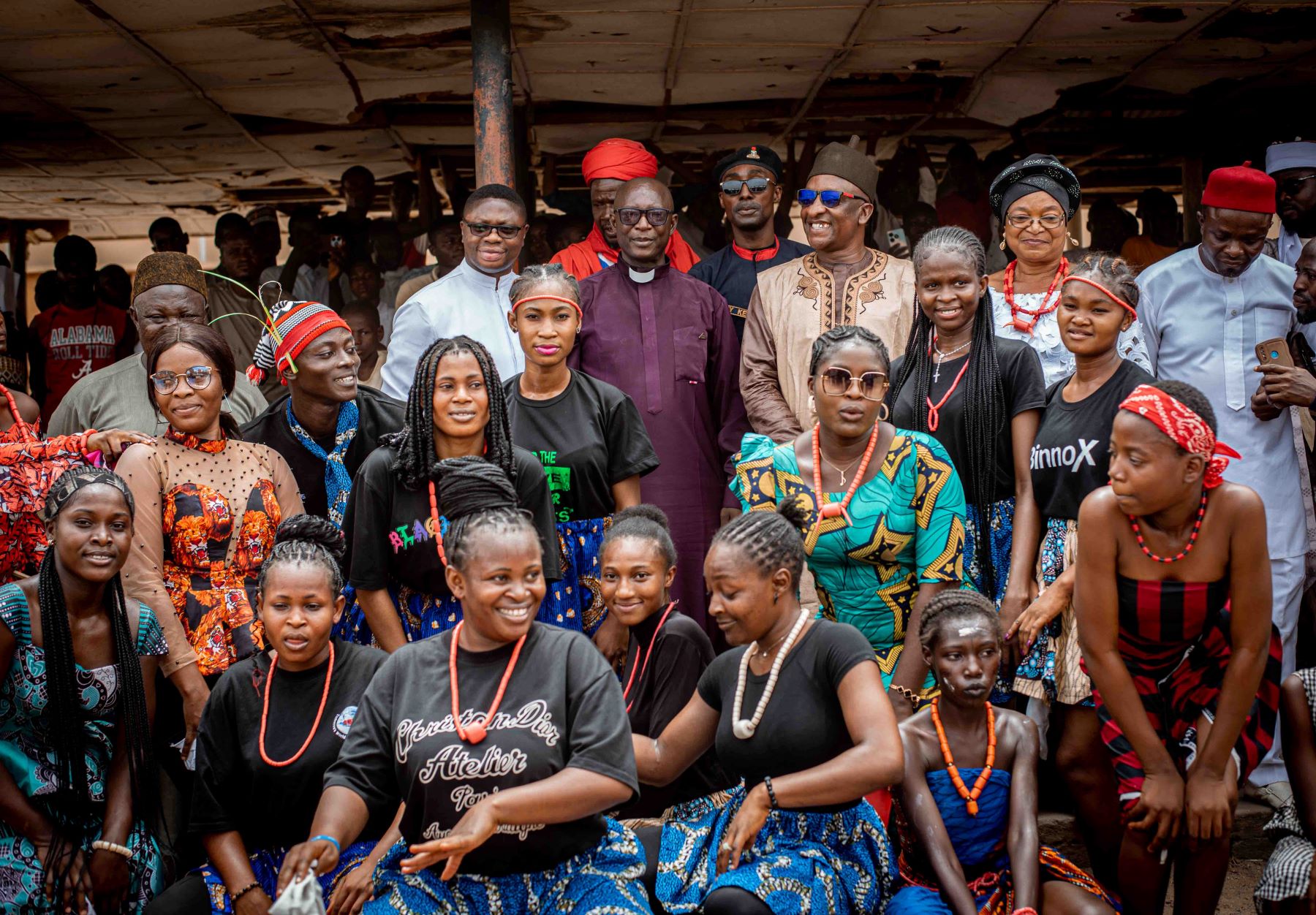Over the years, Global Peace Foundation (GPF) has worked in countries around the world, continually identifying models and local renditions of the vision of One Family Under God. In India, the age-old vision of Vasudhaiva Kutumbakam (One World Family) has for thousands of years guided the people of India in the direction of peace and shared prosperity.
Among our partners in India, the Ramakrishna Mission Foundation, has promoted the ideals of Vasudhaiva Kutumbakam through its wide-ranging networks of service organizations. The Mission has sought to live out the ideals of Vasudhaiva Kutumbakam through its practical services to humankind. With schools and hospitals through India and beyond, the organization has sought to substantialize a world community of One Family Under God.

Senior Vice President of GPF, Aya Goto (left) with Swami Shantatmananda (right)
Recently, the Secretary of the Ramakrishna Mission Foundation in Delhi was invited to share their uniquely and timely message to the people of Japan on September 24, 2018. His visit was sponsored by GPF and Fuji Suiso Kansha as part of efforts to strengthen ties of friendship between India and Japan.
In his speech in Tokyo, Swami Shantatmananda shared heartwarming and entertaining stories to illustrate the principles of the Ramakrishna Mission.
He shared these ideas, not as one to instruct from one tradition to another, but rather to remind us of the essential truths that we know from our own traditions. He commented that the Mission did not seek conversion or uniformity of belief but instead congruence, the consistent and every day practice of the universal principles taught in the different faith traditions.
He explained this through the teachings of the world-renowned Swami Vivekanda, who had visited Japan 125 years earlier. In a speech and commemoration of that special event on the topic of “Global Ethics and Volunteerism,” he explained:
[Swami Vivekananda] said that a Hindu is not to become a Christian, that a Christian is not to become a Muslim, that a Muslim need not become a Hindu. But each must assimilate the good ideas of other religions and integrate them into their own beliefs. […] he gave a new message to the whole world [on] how we can live together as a beautiful community. […] the whole idea is, as long as we identify the goodness in others, it’s always possible to live in harmony. In fact, that is true even in families, in our friend circles, in our business, everywhere this idea: identify the goodness or noble ideas and leave aside the differences, then we can live meaningfully together.

Swami Shantatmananda visits Japanese gardens
Swami Shantatmananda described Swami Vivekananda’s visit to the Parliament of the World’s Religions held in Chicago in 1892. It was at this event that this relatively young man entered the world’s stage and that the Indian wisdom traditions captured the imagination of the global community. He opened his speech hailing his “brothers and sisters of America,” in what must have been a consciousness-altering statement at the time.
In a post-Civil War America and a time of Re-Construction and, in many ways, rebirth, American society at the turn of a new century was undoubtedly grappling over internal and external struggles over meaning, purpose, race, religion and more. The Swami’s call to a live out one’s faith in service to one another as part of one human family appreciating differences echoes today in the Ramakrishna Mission’s work around the world. Its service organizations and programs promote the loving accepting one another despite differences and its lay monks work to live and serve others as the fullest expression of their faith.
Swami Shantatmanada, reminding us of this same message 125 years later, commented that it was in awakening to our truest, spiritual potential that allowed for the success of such a message and to the true purpose of education:
The real foundation or basis of this philosophy is the intrinsic greatness, power, or quality of all individuals irrespective of powers of academics or other physical abilities. In spite of whatever we are, wherever we might be— very bright, not so bright, intelligent, not so intelligent, physically powerful, physically weak or handicapped— all of us are intrinsically blessed with many great qualities and awakening them is the real purpose of education.
Following Swami Shantatmananda’s visit, the hosts and co-sponsors of his visit, Fuji Suiso Kansha and the Global Peace Foundation have made plans to partner directly on a program for underserved communities in the Delhi area.



